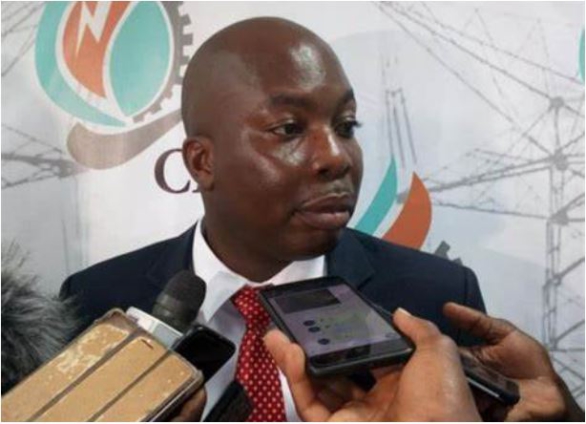
Audio By Carbonatix
As Ghana strives for sustainable development in its energy sector, the adoption of Environmental, Social, and Governance (ESG) principles becomes increasingly imperative. With the world's focus shifting towards responsible business practices, integrating the ESG framework is not just a choice but a necessity for the energy industry.
Incorporating ESG (Environmental, Social, and Governance) principles into the energy sector is crucial for sustainable development. Giving preference for combined cycle power plants for power generation aligns with this framework due to their higher efficiency, productive and optimum use of fuel resource and lower emissions compared to the aged and simple cycle plants, which emit a lot of greenhouse gases into the environment. The preference of combined cycle power plants, as operated by the Independent Power Generators, Ghana support environmental sustainability, reduces carbon footprint, and contributes to Ghana's commitment to cleaner energy generation. Additionally, it promotes economic efficiency by optimizing resource utilization and enhancing energy security.
Environmental Sustainability:
Ghana's energy industry must prioritize environmental sustainability to mitigate the impacts of climate change and preserve natural resources. Embracing renewable energy sources such as solar, wind, and hydroelectric power can reduce carbon emissions and promote a cleaner, greener energy future. Additionally, implementing energy efficiency measures and minimizing waste generation are crucial steps towards environmental stewardship.
Social Responsibility:
The energy sector plays a significant role in the socio-economic development of Ghana. It is essential to prioritize social responsibility by fostering inclusive growth and community engagement. This can be achieved through initiatives such as job creation, skills development, and supporting local businesses. Furthermore, promoting diversity and inclusion within the workforce ensures equal opportunities for all stakeholders, contributing to a more equitable society.
Governance and Transparency:
Transparent governance practices are fundamental to building trust and accountability within the energy industry. Establishing robust corporate governance structures and adhering to ethical business conduct enhances investor confidence and reduces the risk of corruption. Moreover, implementing mechanisms for stakeholder engagement and dialogue fosters transparency and ensures that the needs and concerns of all stakeholders are addressed.
Challenges and Opportunities:
Despite the benefits of adopting the ESG framework, Ghana's energy sector may encounter challenges in its implementation. These challenges include limited access to finance to reconfigure the VRA’s simple cycle power plants, technological constraints, and regulatory barriers. However, overcoming these challenges presents opportunities for innovation, collaboration, and sustainable growth. By leveraging public-private partnerships and harnessing the expertise of Independent Power Generators, Ghana, Ghana can accelerate its transition towards a more sustainable energy future.
Integrating the ESG framework into Ghana's energy sector is essential for fostering long-term sustainability and resilience. By prioritizing environmental stewardship, social responsibility, and transparent governance practices, the energy industry can contribute to Ghana's socio-economic development, while safeguarding the planet for future generations. Through collective action and commitment, Ghana can emerge as a regional leader in sustainable energy practices, setting a positive example for the African continent and beyond.
Latest Stories
-
HIV rate in Wenchi the third highest in Bono Region
3 minutes -
First Lady Lordina Mahama enstooled Nkosuohemaa of Akroso Asukawkaw
4 minutes -
Ex-NaCCA boss Dr Prince Armah authors book to improve Mathematics teaching and understanding in JHS
14 minutes -
Africa could become a safe haven for refugees if Middle East conflict escalates — Dr Mireku
27 minutes -
Bridget Bonnie & Friends mark 6th blood drive with maternal blood bank initiative at 37 Military Hospital
36 minutes -
Old Tafo Municipal Assembly holds mass clean-up ahead of 69th Independence day
42 minutes -
Saudi Aramco shuts Ras Tanura refinery after drone strike, source says
53 minutes -
Opposition criticism on Ghana’s progress is politically motivated— Wonder Madilo
58 minutes -
Association of customs house agents Ghana holds 5th AGM on 24-hour economy
59 minutes -
Confront cocoa crisis head-on with structural reforms – Vicky Bright urges gov’t
60 minutes -
Ghana has pivoted from crisis to stability, but sustainability is key – Vicky Bright on SONA 2026
1 hour -
GPL 2025/26: Antwi delivers as Dreams edge Aduana to boost survival push
1 hour -
Black Queens to continue Pink Ladies Cup participation
2 hours -
Mergers and acquisitions are surging amidst market exuberance on the exit trail
2 hours -
Bekwai court jails 30-Year-old for 25 years over mining site robbery
2 hours

